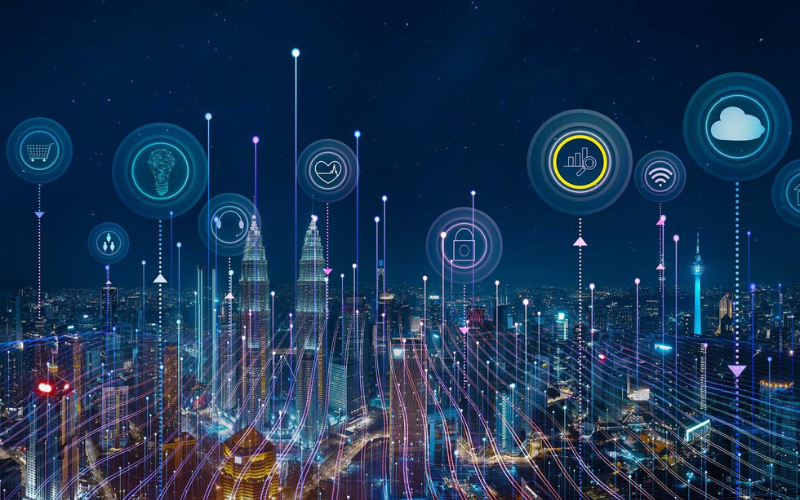In the ever-evolving landscape of technology, innovation is the driving force that propels societies forward. As we step into the third decade of the 21st century, the world is witnessing a rapid proliferation of emerging technologies that promise to reshape industries, enhance human experiences, and revolutionize the way we live and work. This deep dive into the future of innovation unveils the groundbreaking emerging technologies that are poised to transform our world.
Navigating the Transformative Landscape of Emerging Technologies
In the ever-evolving landscape of technology, innovation twitter is the driving force that propels societies forward. As we step into the third decade of the 21st century, the world is witnessing a rapid proliferation of emerging technologies that promise to reshape industries, enhance human experiences, and revolutionize the way we live and work. This deep dive into the future of innovation unveils the groundbreaking emerging technologies that are poised to transform our world.
Artificial Intelligence (AI) and Machine Learning
Artificial Intelligence and Machine Learning have emerged as the cornerstone of the technological revolution. AI-powered applications are being integrated into various sectors, from healthcare and finance to manufacturing and entertainment. Machine Learning algorithms analyze massive datasets, enabling businesses to make data-driven decisions. The ability of AI to learn from data and improve its performance over time has opened doors to innovative solutions, including predictive analytics, natural language processing, and autonomous systems.
Internet of Things (IoT)
The Internet of Things has bridged the gap between the physical and digital worlds. IoT connects everyday devices to the internet, enabling them to collect and exchange data. Smart homes, wearable devices, and industrial sensors are just a few examples of IoT applications. This interconnected network of devices facilitates automation, enhances efficiency, and improves user experiences. As IoT technology advances, it will revolutionize sectors such as healthcare, transportation, and agriculture.
Blockchain Technology
Blockchain technology, known primarily as the foundation of cryptocurrencies like Bitcoin, has far-reaching implications beyond digital currencies. Blockchain is a decentralized and tamper-proof ledger that records transactions across multiple computers. Its secure and transparent nature makes it ideal for various applications, including supply chain management, healthcare data management, and voting systems. Blockchain’s ability to ensure data integrity and enhance security is revolutionizing industries and transforming traditional business models.
Augmented Reality (AR) and Virtual Reality (VR)
Augmented Reality and Virtual Reality are reshaping the way we perceive and interact with the world. AR overlays digital information onto the real world, enhancing our sensory experiences. VR, on the other hand, immerses users in entirely virtual environments. Both technologies find applications in gaming, education, healthcare, and training simulations. From virtual classrooms to immersive virtual tours, AR and VR are enhancing learning experiences and revolutionizing the entertainment industry.
5G Technology
The rollout of 5G networks is set to revolutionize connectivity and communication. 5G technology offers significantly faster data transfer speeds and lower latency, enabling real-time communication and seamless connectivity. This advancement is a game-changer for IoT devices, autonomous vehicles, and smart cities. The enhanced network capabilities of 5G will pave the way for innovative applications, such as remote robotic surgeries, augmented reality gaming, and autonomous transportation systems.
Quantum Computing
Quantum Computing is on the horizon, promising unparalleled computational power. Unlike classical computers that use bits (0s and 1s) for processing information, quantum computers use quantum bits or qubits. Qubits can exist in multiple states simultaneously, allowing quantum computers to perform complex calculations at an exponentially faster rate. This technology holds immense potential for solving complex problems in fields like cryptography, drug discovery, and optimization, which are beyond the capabilities of classical computers.
Navigating the Challenges
While the future painted by emerging technologies is undoubtedly promising, it comes with its set of challenges. Ethical considerations, data privacy concerns, and cybersecurity threats are critical issues that need to be addressed. Striking a balance between innovation and ethical responsibility is essential to harness the full potential of these technologies.
In conclusion, the future of innovation lies in the hands of these emerging technologies. As we navigate this transformative landscape, embracing these advancements responsibly can lead to a future where human potential is amplified, and societal challenges are met with innovative solutions. The deep dive into the future of innovation reveals a world where the boundaries of what is possible are continually expanding, paving the way for a brighter, technologically advanced future. Stay tuned as we embark on this exciting journey into the uncharted territories of innovation, guided by the beacon of emerging technologies.





